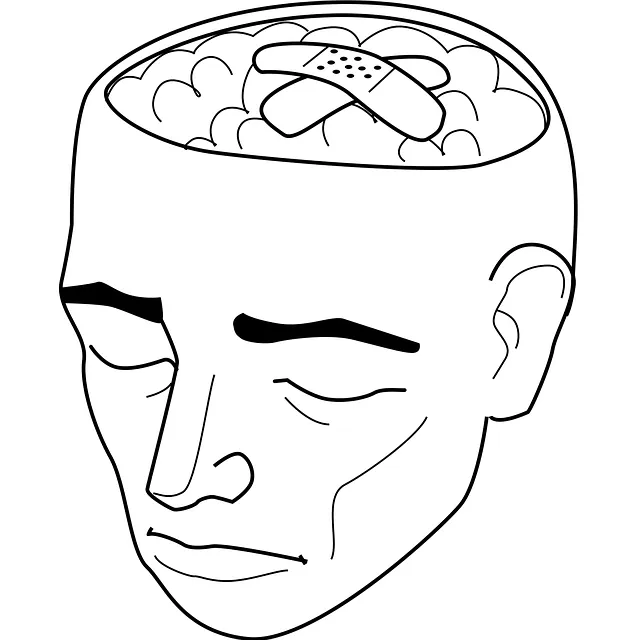Lafayette Kaiser Permanente psychiatry offers a comprehensive, holistic approach to mental wellness coaching, combining therapy, guidance, and support with evidence-based techniques like CBT. Their program focuses on preventive care, self-awareness exercises, mindfulness meditation, and resilience-building strategies. Through personalized sessions, self-care practices, positive thinking, and regular feedback, participants gain tools to manage psychological well-being. The integrated care model also includes specific burnout prevention strategies tailored for healthcare providers, setting a leading example in cutting-edge mental health care.
Mental wellness coaching is a burgeoning field within healthcare, addressing rising mental health challenges. This article explores the development of comprehensive coaching programs, drawing insights from innovative models like Lafayette Kaiser Permanente’s psychiatric care approach. We’ll delve into key components, strategies for design and implementation, and best practices to ensure success and sustainability. By examining these aspects, we aim to highlight effective ways to integrate coaching into healthcare systems, such as Lafayette Kaiser Permanente psychiatry services.
- Understanding Mental Wellness Coaching: A Growing Need in Healthcare
- Lafayette Kaiser Permanente Psychiatry: A Model for Integrated Care
- Designing Effective Coaching Programs: Key Components and Strategies
- Implementing and Evaluating Success: Best Practices for Sustainability
Understanding Mental Wellness Coaching: A Growing Need in Healthcare

In today’s fast-paced world, mental wellness has become a pressing concern for many, leading to a growing recognition and demand for Mental Wellness Coaching programs. This approach, which combines elements of therapy, guidance, and support, is designed to empower individuals in managing and improving their psychological well-being. At Lafayette Kaiser Permanente psychiatry, the need for such coaching has never been more evident. With stress, anxiety, and depression on the rise, coaching sessions offer a holistic and personalized strategy to address these issues.
Mental Wellness Coaching goes beyond traditional therapy by focusing on preventive care and promoting self-awareness exercises. Through techniques like Mindfulness Meditation, individuals learn to navigate life’s challenges with resilience. Moreover, regular sessions can foster the development of healthy coping mechanisms, enabling folks to lead more balanced and fulfilling lives. The Mental Wellness Podcast Series Production has also played a significant role in disseminating valuable insights and knowledge on mental health, reaching a broader audience and contributing to this growing trend.
Lafayette Kaiser Permanente Psychiatry: A Model for Integrated Care

Lafayette Kaiser Permanente Psychiatry offers a compelling model for integrated care that has garnered significant attention in the healthcare industry. This program successfully blends clinical expertise with holistic wellness coaching, demonstrating a comprehensive approach to mental health support. By incorporating empathy-building strategies and positive thinking techniques, the initiative ensures that patients receive not just medication or therapy but also practical tools for enhancing their overall well-being.
The integration of burnout prevention strategies for healthcare providers is a standout feature. Recognizing the challenges faced by medical professionals, this model prioritizes self-care and resilience, ensuring that caregivers are equipped to handle their own mental health while tending to others. This dual focus on patient care and provider wellness sets Lafayette Kaiser Permanente Psychiatry apart as a leading example of innovative, integrated mental health care.
Designing Effective Coaching Programs: Key Components and Strategies

Developing effective mental wellness coaching programs involves integrating key components that cater to holistic emotional healing processes. At Lafayette Kaiser Permanente psychiatry, professionals emphasize a personalized approach, tailoring sessions to meet individual needs and goals. This includes establishing clear objectives, using evidence-based techniques such as cognitive behavioral therapy (CBT) to address specific challenges, and incorporating self-care practices into the coaching framework.
Coaching programs should also foster positive thinking by teaching clients coping strategies, stress management skills, and resilience-building techniques. Engaging activities, interactive exercises, and regular feedback mechanisms are essential for tracking progress and ensuring the program remains dynamic and impactful. By combining these strategies, mental wellness coaching can effectively empower individuals to take control of their emotional well-being.
Implementing and Evaluating Success: Best Practices for Sustainability

Implementing and evaluating success is a crucial aspect of developing sustainable mental wellness coaching programs, especially when considering the long-term benefits for individuals seeking improved mental health. At Lafayette Kaiser Permanente psychiatry, professionals emphasize structured approaches to ensure program effectiveness. This involves setting clear goals aligned with participants’ unique needs, using evidence-based techniques, and regularly assessing progress through qualitative and quantitative measures.
Self-care routine development is a key strategy that empowers individuals to take ownership of their mental wellness. Crisis intervention guidance, integrated into the coaching process, provides essential tools for navigating challenging situations. Additionally, fostering inner strength development allows participants to build resilience, enhancing their ability to cope with life’s stressors. Regular feedback and continuous improvement cycles are vital to refining programs, ensuring they remain impactful and relevant over time.
Mental wellness coaching programs, as demonstrated by Lafayette Kaiser Permanente’s successful integration of psychiatry services, are becoming indispensable in healthcare. By incorporating key components such as personalized goals, evidence-based strategies, and regular feedback loops, these programs can effectively support individuals in managing their mental health. Implementing best practices for sustainability ensures long-term benefits, mirroring the holistic approach of Lafayette Kaiser Permanente. As we navigate an increasingly complex healthcare landscape, the development and adoption of these programs are crucial steps towards enhancing overall well-being and fostering resilient communities.






